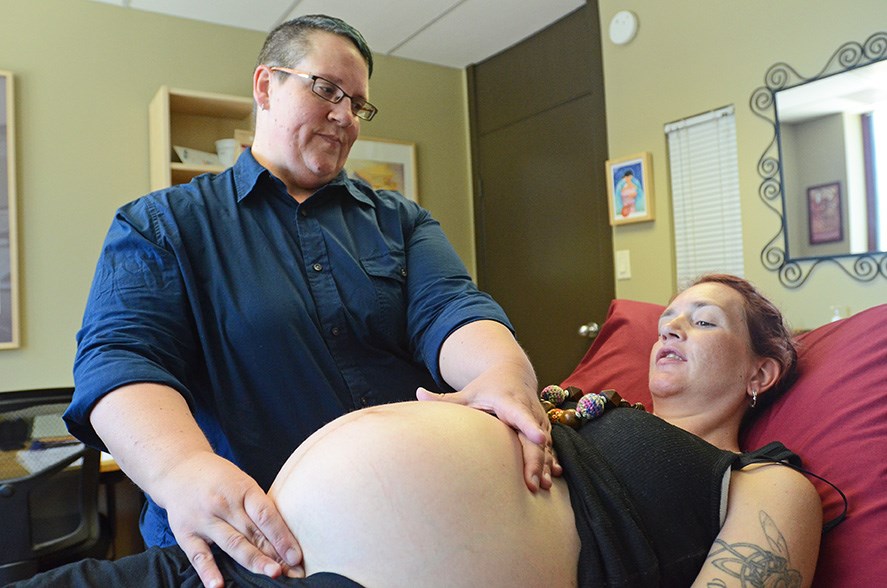Expectant New Westminster and Burnaby moms aren’t getting the medical care they want, and local midwives want the government to change that.
“We turn away two to three times as many patients as we accept,” New West midwife Tracy Simpson told The Record. “It disappoints me because those women aren’t getting the care that they’re asking for. … It’s a particular kind of care that people are wanting, and they don’t get to choose.”
The problem, Simpson said, is a shortage of midwives.
There are no midwifery practices in Burnaby and only two apiece in New West and Coquitlam, she said.
With two midwives at each clinic, that makes a total of eight to serve all three cities.
A few Vancouver midwives have privileges at Burnaby and Royal Columbian hospitals, but even with those, there are not nearly enough to meet local demand, Simpson said.
Alison Anderson started looking for a midwife just days after finding out she was pregnant with her first child last year.
The Port Coquitlam mom didn’t find a spot in Simpson’s New West Community Midwives clinic until about six months later, after she’d called every midwife from Mission to New West.
“It was very stressful in the beginning not being able to find a midwife and knowing that a lot of my options were no longer available,” she said.
She hopes things will be easier the next time around, but unless the government invests more money in midwives, things are unlikely to change, according to Simpson.
B.C.’s 220 midwives, who have been in the process of negotiating a new contract since March, want the provincial government to invest $3 million a year over the next five years to expand access to midwifery services.
To protest a lack of progress at the bargaining table, they announced last week they would stop training midwifery students immediately and could withdraw other services within 90 days.
The midwives’ demands include a 15 per cent fee increase over five years, but 85 per cent of the spending they propose would go toward programs that would make it easier for pregnant women to find midwives near them, according to Midwives of Association of B.C. executive director Ganga Jolicoeur.
Midwives, who supervised 16 per cent of births in B.C. in 2012/13, would like to see that number increase to 35 per cent by 2020 – something the provincial association says would save the province $60 million by reducing hospital stays and invasive medical procedures.
Even at 35 per cent, B.C. would lag well behind midwife-assisted births in the United Kingdom, at 80 per cent, or New Zealand, at 70 per cent.
One thing that could dramatically increase local access to midwifery services, according to Simpson, would be to expedite the certification of foreign-trained midwives.
The province funded a pilot program at the University of British Columbia to that end several years ago, but money for that initiative dried up.
“There are so many internationally trained midwives here, or who want to come here, who have tons of experience, tons of education, but can’t get their licence here because that program’s no longer funded.” Simpson said.
As it stands now, Simpson said she can’t expand her practice to meet local demand.
“I don’t have 10 midwives to go pick from,” she said. “I don’t even have one to go pick from, so when I want to expand the practice and take more clients and all these people I’m saying no to, I can’t.”
-with files from Erin Ellis, Vancouver Sun



